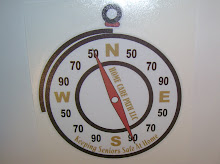The seniors primary doctor may refer them to a specialist. Here is a list and corresponding body part the Doctor would help care for.
Cardiologist: heart and coronary artery specialist
Dermatologist: skin specialist
Endocrinologist: gland and hormone specialist
Gastroenterologist: stomach and digestive tract specialist
Hematologist: blood specialist
Nephrologist:kidney specialist
Neurologist: brain and nervous system specialist
Oncologist:cancer and tumor specialist
Opthamologist:eye specialist
Orthopedist:bone, muscle, and joint specialist
Otolaryngologist:ear, nose, and throat specialist
Proctologist: anus, rectum, colon specialist
Pulmonary: lung and chest disorders
Radiologist: x ray specialist
Rehabilitation: stroke and injury disability specialist
Rheumatologist:rheumatism and arthritis specialist
Surgeon : operating on the body surgical procedure specialist
Urologist: urinary and reproductive specialist
When a primary MD refers you to a specialist ask where the specialist is located. Many specialist's will reside in larger city but hold office hours in rural clinics on a monthly basis. Also how the senior will attend visits with the specialist. Try to coordinate to the seniors convenience. If the specialist is in town twice per month, schedule an appointment while the specialist is in town. This prevents having to take the senior into the city for the specialist visit. Meeting with a specialist can result in additional diagnositic testing. Coordinate the additonal visits to the seniors advantage. Always ask can this be done locally. Remember having an appointment with a specialist in a nearby city and the senior has no way of attending is counter productive.
Monday, June 14, 2010
Subscribe to:
Post Comments (Atom)

No comments:
Post a Comment